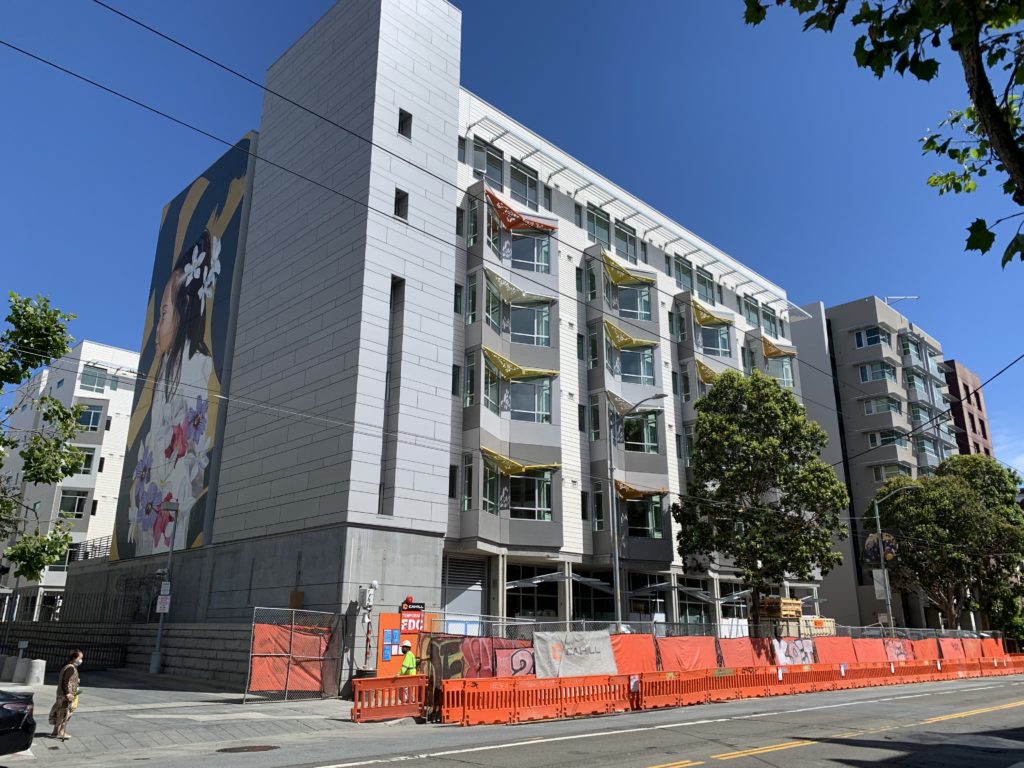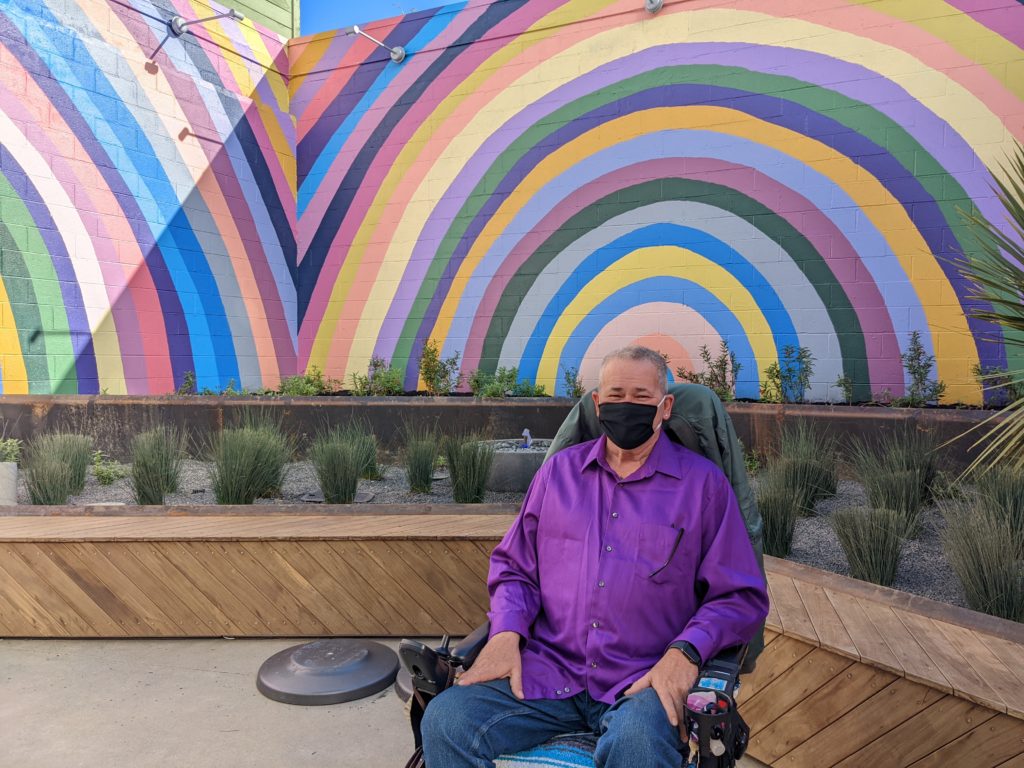In the News
“A ribbon cutting ceremony was held Wednesday outside 1064 Mission Street, to inaugurate the opening of the city’s largest permanent supportive housing building.“
“In this episode we feature the voices of the executive director of the Department of Homelessness and Supportive Housing for the City and County of San Francisco, Shireen McSpadden, the Manager of Housing Subsidy Programs at the Department of Homelessness and Supportive Housing, Alan Guttirez along with a participant in the Department of Homelessness and Supportive Housing Flex Housing Pool program Jugal Patel as well as the Executive Director of Episcopal Community Services of San Francisco, Beth Stokes.”

Housing can get built quickly and affordably in San Francisco, if stakeholders come together. In an article about new housing overcoming red tape in the City, the San Francisco Standard featured 1064 and 1066 Mission Street, ECS’ brand new development in cooperation with Mercy Housing. The only one of the featured sites dedicated fully to Permanent Supportive Housing, the Standard notes the services available on site as well as the modular construction model that sped up construction.
“The SoMa facility located at 226 Sixth St. will offer temporary lodging, along with mental health and job support, to people released from San Francisco jails. Run by Adult Probation, Episcopal Community Services and the Pretrial Diversion Project, the state-funded program will provide up to 30 beds for an initial trial period of one year.”
“ECS stands in solidarity with women everywhere who seek safe access to healthcare, and we are committed to the fight for reproductive justice. We are horrified by today’s Supreme Court decision in Dobbs v. Jackson Women’s Health Organization to overturn Roe v. Wade, ending nearly a half a century of jurisprudence on the privacy and bodily autonomy of women. Bodily autonomy, including the right to determine if and when to have children and whether to carry a pregnancy to term, is a basic human right.”

Timothy Isaiah experienced homelessness for over 30 years before moving into his new home at 833 Bryant St in November 2021. Timothy is one of 145 formerly homeless tenants that now live in this permanent supportive housing (PSH) site, accompanied by ECS wrap-around service. The units at 833 Bryant, which cost just $385,000 per unit compared to the standard cost of over $600,000 per unit, set an example that when innovation and commitment come together, we can solve one of the most difficult challenges our city faces.
“The plan is to build between 43 and 50 units of “permanent supportive housing” for single adults experiencing homelessness in the county. In addition to housing, the site would feature a range of services including case management, mental health, educational and vocational programs. Episcopal Community Services will own the building, which sits near Corte Madera Creek, and would also serve as the facility’s operator.”

ECS is proud to be a part of a first-of-its kind program in California launched in San Francisco to bring supportive services directly to the homes of formerly homeless San Franciscans. While In-Home Supportive Services (IHSS) – as these services are known – has been an integral part of the social services fabric in California for a while, bringing it to residents of permanent supportive housing in a systematic and intentional way is new.
The San Francisco Chronicle reports on the project, noting that city officials believe that the success of strategy will greatly reduce social service costs for the taxpayer and improve health outcomes for supportive housing residents who would most benefit. The Chronicle notes the pilot of this project happening at the Minna Lee, where ECS provides supportive services for some 50 residents. The in-home visits are being conducted by Homebridge, a community partner.
“The County selected ECS, a San Francisco–based nonprofit, to identify, vet and secure up to two potential Project Homekey sites, one of which is the South Eliseo property. “
“Marin County, in partnership with Episcopal Community Services of San Francisco, hopes to win approval from the state to use some of the next round of Project Homekey funds to purchase the property.”
